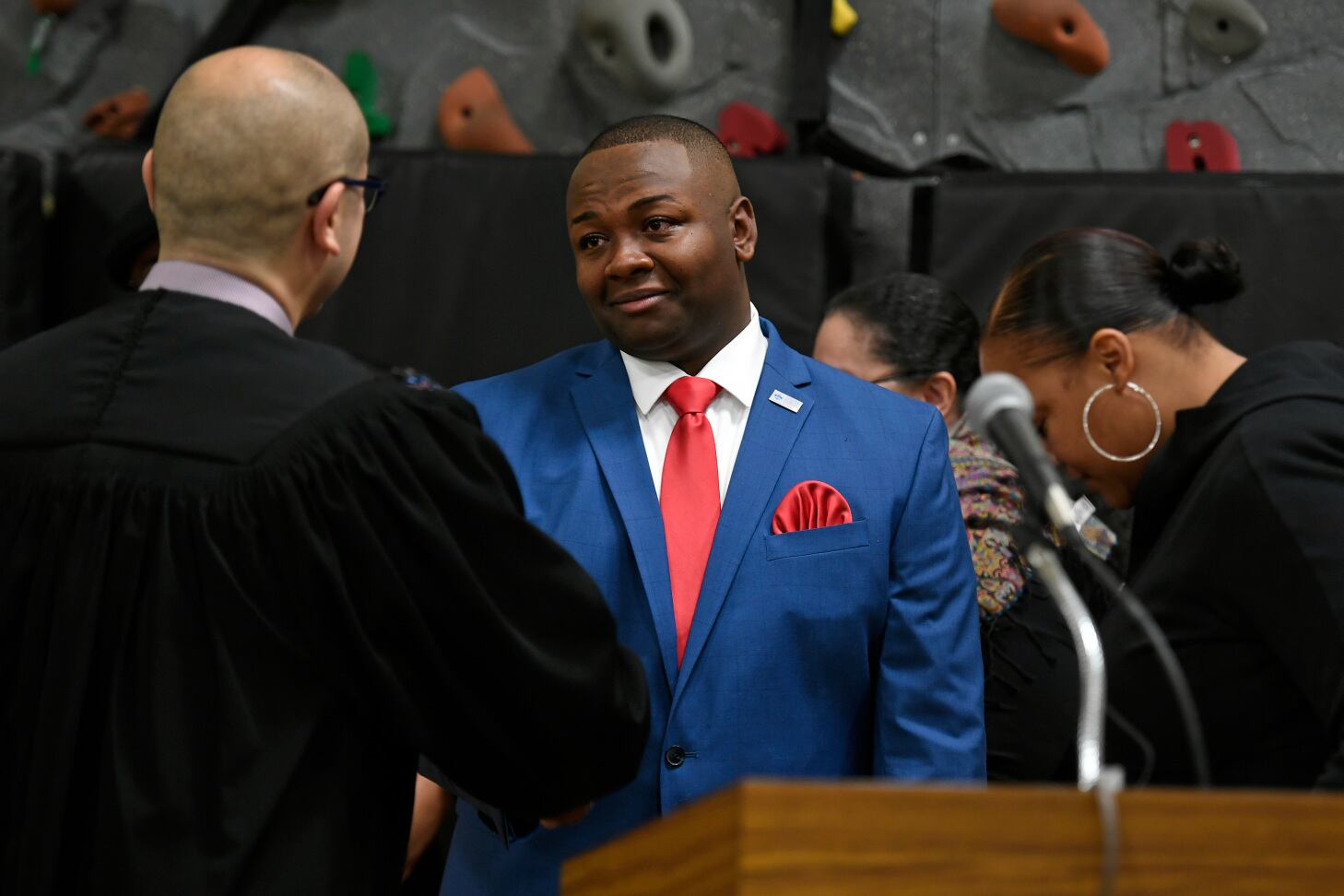A move by the Denver school board president toward censuring the board vice president was squashed by the other board members Monday.
The board quickly voted 6-1 to remove from Monday’s meeting agenda a discussion of accusations made by President Xóchitl “Sochi” Gaytán that Vice President Auon’tai Anderson violated board policies after a March 22 shooting at East High School.
Gaytán was the only board member to vote against removing the discussion from the agenda. She’d previously said she planned to move for a vote to censure Anderson on April 20.
Board member Michelle Quattlebaum said that in the wake of the shooting at East and other youth violence, student safety should be the board’s top priority.
“Anything that’s happening amongst us is not even secondary,” Quattlebaum said. “It shouldn’t even make the top 10. It shouldn’t matter at all. Because our babies don’t feel safe.”
Personality conflicts, power struggles, and attempts at reconciliation have marked interactions between board members, especially Anderson and Gaytán, for the past year.
Among other violations, Gaytán had accused Anderson of disclosing to the press confidential information from a closed-door executive session of the board on March 23, one day after a student shot and injured two deans at East High School. Anderson said the information he disclosed to the press was shared with him outside of the executive session.
Denver school board members met in executive session, then voted unanimously to return police officers to Denver schools. On March 27, Anderson, who helped lead a controversial 2020 effort to remove police officers from schools, held a press conference in which he said Denver Mayor Michael Hancock forced the board’s decision to bring them back.
Anderson said Hancock “had an executive order ready to be drafted and declare a public health emergency … to deploy school resource officers back to schools.”
After the press conference, Gaytán wrote Anderson a memo outlining what she described as violations of board policy. The alleged violations included that Anderson “disclosed information discussed in Executive Session. Specifically, naming the Mayor’s private communication with the Superintendent regarding the creation of an Executive Order to address school safety,” according to a copy of the memo obtained by Chalkbeat.
Anderson has said that Superintendent Alex Marrero told him about the potential mayoral order before the executive session. Hancock’s office has denied he had an order ready to go.
Melanie Asmar is a senior reporter for Chalkbeat Colorado, covering Denver Public Schools. Contact Melanie at masmar@chalkbeat.org.






